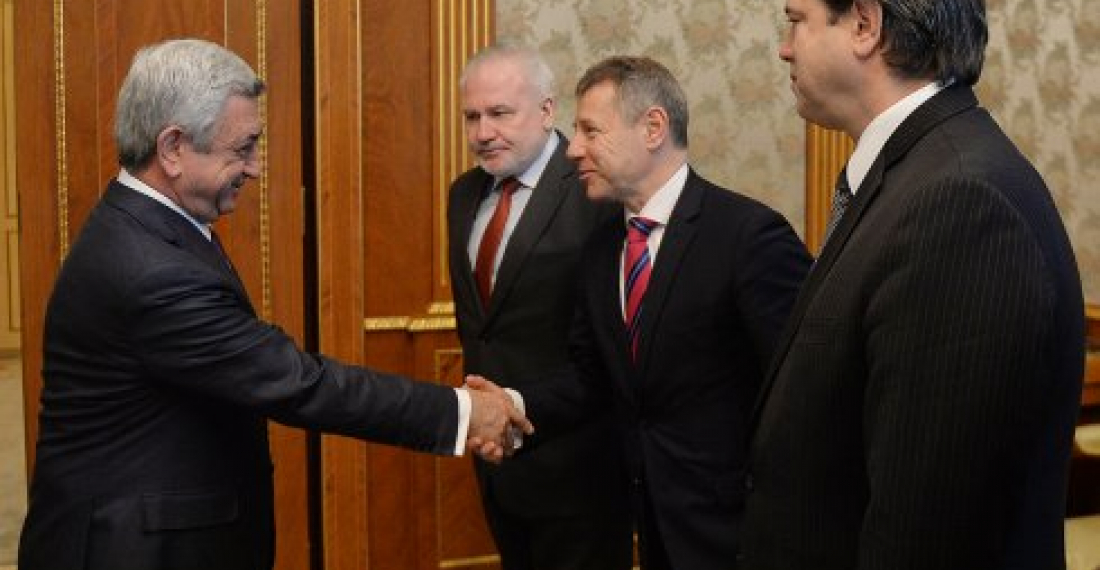В пятницу (9 февраля), президент Армении Серж Саргсян встретился с сопредседателями Минского процесса ОБСЕ по Карабаху, с дипломатами Игорем Поповым представляющим Россию, Стефаном Висконти представляющим Францию и Эндрю Шофером представляющим Соединенные Штаты Америки, а также с личным представителем Действующего председателя ОБСЕ Анджейем Каспшиком.
Как сообщает пресс-служба президента Армении, дипломаты представили президенту Саргсяну результаты своих встреч в Баку, имевших место ранее на этой неделе.
По словам источника, президент Саргсян обратил внимание дипломатов на недавние заявления, сделанные в Баку, "отметив, что они еще раз подтверждают, что Азербайджан пока еще слишком далек от готовности содействовать переговорному процессу на основе предложений Сопредседателей Минской Группы, а также демонстрируют ответ Баку на постоянные призывы сопредседателей готовить общества к миру".
Ожидается, что дипломаты также посетят Нагорный Карабах.
источник: commonspace.eu по материалам пресс-службы президента Армении
фото: Президент Серж Саргсян с сопредседателями Минского процесса ОБСЕ во время их визита в Ереван, 9 февраля 2018 года (фото предоставлено пресс-службой президента Армении)





